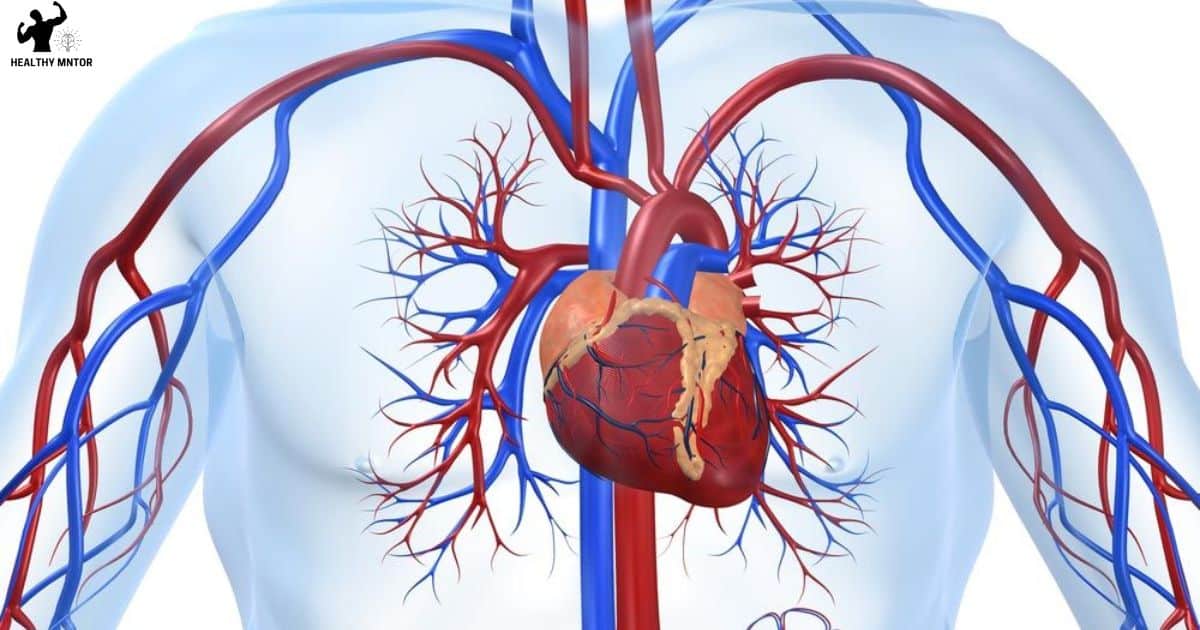Did you know that brain health is closely tied to heart and blood vessel health? Research shows that maintaining a healthy cardiovascular system can have a significant impact on brain function and overall well-being. Understanding the connection between these two vital organs is essential for promoting brain health and preventing cognitive decline. In this article, we will explore the scientific evidence supporting the relationship between brain health and cardiovascular health and discuss strategies for maintaining both for optimal cognitive function.
Key Takeaways
- Brain health is closely tied to heart and blood vessel health.
- Maintaining a healthy cardiovascular system can impact brain function and overall well-being.
- Conditions like high blood pressure, diabetes, and high cholesterol increase the risk of cognitive decline and dementia.
- Impaired blood flow from cardiovascular issues can lead to cognitive impairment.
The Link Between Brain Health and Cardiovascular Health
The correlation between brain health and cardiovascular health has become a prominent focus of research in recent years. Numerous studies have indicated a strong link between the two, suggesting that maintaining a healthy heart and blood vessels is essential for optimal brain function. Research has shown that conditions such as high blood pressure, diabetes, and high cholesterol, which are known risk factors for cardiovascular disease, can also increase the risk of cognitive decline and dementia. Furthermore, impaired blood flow from cardiovascular issues can lead to decreased oxygen and nutrient supply to the brain, resulting in cognitive impairment. Conversely, adopting heart-healthy lifestyle habits, such as regular exercise, a balanced diet, and managing stress, can not only benefit cardiovascular health but also preserve brain function and reduce the risk of cognitive decline.
Understanding the Connection: Brain Health and Heart Health
During the ongoing discussion on understanding the connection between brain health and heart health, researchers have found compelling evidence supporting the interplay between these two crucial aspects of overall well-being. Numerous studies have shown that maintaining a healthy heart and blood vessel system is closely linked to optimal brain function and cognitive abilities. The brain relies on a constant supply of oxygen and nutrients delivered through a complex network of blood vessels. Any disruption in this blood flow, such as from cardiovascular diseases or conditions like high blood pressure, can lead to impaired brain function and an increased risk of cognitive decline and dementia. Conversely, promoting heart health through regular exercise, a balanced diet, and managing risk factors like hypertension can help support brain health and reduce the risk of cognitive impairment. Understanding the intricate relationship between brain and heart health is vital for promoting overall well-being and preventing age-related cognitive decline.
The Impact of Heart and Blood Vessel Health on Brain Function
A comprehensive understanding of current research reveals the significant impact that health insurance, heart, and blood vessel health have on brain function. Numerous studies have found a strong association between cardiovascular health and cognitive abilities. The brain relies heavily on a constant supply of oxygen and nutrients delivered through the bloodstream, which is facilitated by a healthy heart and blood vessels. Poor cardiovascular health, such as high blood pressure and atherosclerosis, can impair blood flow to the brain, leading to cognitive decline and an increased risk of neurodegenerative diseases like Alzheimer’s. Conversely, maintaining good heart and blood vessel health through regular exercise, a healthy diet, and managing risk factors like high cholesterol and diabetes, can promote optimal brain function and reduce the risk of cognitive decline. These findings highlight the importance of adopting a holistic approach to health, where health insurance, heart, and blood vessel health are recognized as integral components of overall brain health.
Exploring the Relationship: Brain Health and Cardiovascular Health
Numerous studies have highlighted the strong correlation between brain health and cardiovascular health, emphasizing the need to further explore this relationship. The brain relies on a constant supply of oxygen and nutrients delivered by the cardiovascular system through blood vessels. Disruptions in cardiovascular health, such as high blood pressure, high cholesterol, and diabetes, can negatively impact brain health and increase the risk of cognitive decline, dementia, and stroke. Conversely, maintaining a healthy cardiovascular system through regular exercise, a balanced diet, and managing risk factors can promote brain health and reduce the risk of cognitive decline. Further research is needed to better understand the mechanisms underlying this relationship and develop effective strategies for preventing and treating cardiovascular and neurological diseases. This knowledge is crucial for promoting overall well-being and addressing the growing burden of age-related cognitive decline.
The Role of Heart and Blood Vessel Health in Maintaining Brain Function
The role of heart and blood vessel health in maintaining brain function is crucial to understanding the relationship between cardiovascular health and cognitive decline. Research has shown that poor cardiovascular health can lead to decreased blood flow to the brain, which can result in cognitive impairment and an increased risk of conditions such as dementia and Alzheimer’s disease. The brain relies on a constant supply of oxygen and nutrients, which are delivered through a network of blood vessels. When these vessels become narrowed or damaged due to conditions like high blood pressure or atherosclerosis, the brain may not receive adequate blood flow, leading to cognitive decline. Maintaining a healthy heart and blood vessels through regular exercise, a balanced diet, and managing risk factors such as high blood pressure and cholesterol levels, is essential for preserving brain function and reducing the risk of cognitive decline.
Strategies for Promoting Brain Health Through Cardiovascular Health
Implementing lifestyle changes, such as regular exercise and a heart-healthy diet, can significantly improve brain health through the promotion of cardiovascular health. Research has shown that the brain relies on a healthy blood supply to function optimally, and when the heart and blood vessels are in good condition, they can deliver the necessary oxygen and nutrients to the brain. In addition to improving cardiovascular health, these lifestyle changes have been shown to have direct benefits for brain health. Here are five strategies for promoting brain health through cardiovascular health:
- Engage in aerobic exercise regularly
- Follow a heart-healthy diet, rich in fruits, vegetables, and whole grains
- Manage and reduce stress levels
- Get enough quality sleep each night
- Maintain a healthy weight
Implementing these strategies not only supports brain health but also has implications for overall well-being, as brain health and heart health are closely linked.
Implications for Overall Well-being: Brain Health and Heart Health
Maintaining a healthy lifestyle that prioritizes both brain health and heart health can lead to significant improvements in overall well-being. Research has shown a strong link between brain health and heart health, suggesting that taking care of one can positively impact the other. The brain relies on a steady supply of oxygen and nutrients, which are delivered through a network of blood vessels. Any compromise in blood flow to the brain can lead to cognitive decline and increased risk of neurodegenerative diseases. Similarly, the heart depends on a healthy circulatory system to pump oxygen-rich blood to the brain and other organs. By adopting habits such as regular exercise, a balanced diet, stress management, and adequate sleep, individuals can support both brain and heart health, enhancing their overall well-being.
Frequently Asked Questions
Can Brain Health Issues Be Completely Prevented Through Maintaining Cardiovascular Health?
Maintaining cardiovascular health can contribute to the prevention of brain health issues. While not a foolproof guarantee, research suggests that a healthy heart and blood vessels can reduce the risk of cognitive decline and neurodegenerative diseases.
Are There Any Specific Exercises or Activities That Can Improve Both Brain and Cardiovascular Health?
Engaging in regular exercise and physical activity has been shown to have positive effects on both brain and cardiovascular health. Specific exercises and activities, such as aerobic exercise and strength training, can improve cognitive function and promote overall heart and blood vessel health.
How Does Heart Disease Specifically Affect Brain Function and Cognitive Abilities?
Heart disease can have a significant impact on brain function and cognitive abilities. Reduced blood flow and oxygen supply to the brain can lead to cognitive decline, memory loss, and an increased risk of developing conditions such as dementia.
Do Genetic Factors Play a Role in the Connection Between Brain Health and Cardiovascular Health?
Genetic factors can play a role in the connection between brain health and cardiovascular health. Research suggests that certain genetic variations may increase the risk of both heart disease and cognitive decline, highlighting the interplay between these two systems.
Can Improving Cardiovascular Health Reverse or Slow Down the Progression of Neurodegenerative Diseases Such as Alzheimer’s?
Improving cardiovascular health may have a positive impact on the progression of neurodegenerative diseases such as Alzheimer’s. Research suggests a strong connection between heart and blood vessel health and brain function, supporting the potential for cardiovascular interventions in neurodegenerative disorders.
Conclusion
In conclusion, the evidence suggests a strong link between brain health and cardiovascular health. The intricate relationship between the brain and the heart and blood vessels highlights the importance of maintaining a healthy cardiovascular system for optimal brain function. Strategies aimed at promoting cardiovascular health, such as regular exercise and a balanced diet, may also have positive effects on brain health. Ultimately, understanding and addressing the connection between brain health and heart health can have significant implications for overall well-being.







